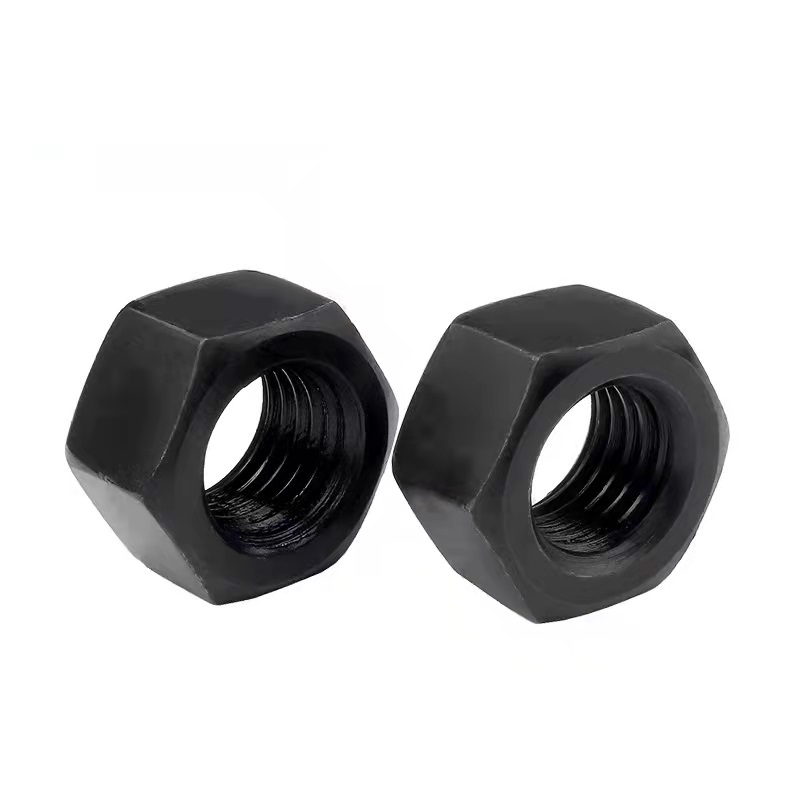best stud bolt m24
Dec . 12, 2024 00:22 Back to list
best stud bolt m24
Understanding Best Stud Bolt M24 A Comprehensive Guide
When it comes to industrial applications, the significance of reliable fastening components cannot be understated. Among these, the stud bolt, particularly the M24 variant, plays a crucial role in ensuring the stability and durability of structures and machinery. This article delves into the characteristics, applications, and selection criteria of the best M24 stud bolts to help consumers make informed decisions.
What is an M24 Stud Bolt?
The M24 stud bolt is a type of fastener defined by its metric diameter of 24 millimeters. It typically features threads on both ends and a smooth cylindrical midpoint, allowing it to be inserted into a nut or tapped hole. The design facilitates high tension and load-bearing capacities, making stud bolts essential in various applications where reliability is paramount.
Characteristics of M24 Stud Bolts
1. Material M24 stud bolts are available in various materials, including carbon steel, stainless steel, and alloy steel. Selecting the appropriate material based on environmental factors (like corrosion resistance) is vital for ensuring longevity and performance.
2. Strength The strength of the stud bolt is often indicated by its grade. Common grades for M24 bolts include 8.8, 10.9, and 12.9, which designate different tensile strengths. The higher the grade, the stronger the bolt, allowing it to withstand more significant loads.
3. Surface Finish The surface finish of the stud can impact its performance and corrosion resistance. Options include plain, galvanized, and coated surfaces. For outdoor or high-humidity applications, a galvanized or coated option is often preferable.
4. Load Capacity Understanding the load capacity is essential when choosing the right stud bolt for a specific application. M24 stud bolts are typically rated to handle various loads, but consulting technical specifications or guides ensures the right choice for the desired application.
Applications of M24 Stud Bolts
M24 stud bolts are widely used in various industries, including
- Construction These bolts are instrumental in building frameworks and securing structural components, ensuring stability for everything from bridges to high-rise buildings.
best stud bolt m24

- Manufacturing In manufacturing environments, M24 stud bolts are used to assemble machinery and equipment. Their ability to handle tension and shear forces makes them ideal for this purpose.
- Marine Applications The corrosion resistance of stainless steel M24 stud bolts makes them suitable for marine applications, where exposure to seawater is a concern.
- Automotive In the automotive sector, M24 stud bolts are used to secure engine components and chassis, providing the necessary strength to withstand extreme conditions.
Selection Criteria for the Best M24 Stud Bolts
When selecting M24 stud bolts, consider the following criteria
1. Application Requirements Assess the specific needs of your project, such as load capacity, environmental conditions, and required durability.
2. Material Selection Choose a material that’s suitable for your operating environment—corrosion-resistant materials are ideal for humid or salty conditions.
3. Dimensional Accuracy Ensure that the threads and overall length of the stud meet the required specifications, as accuracy in dimensions is critical for the secure fitting.
4. Supplier Reputation Engage with reputable suppliers who offer high-quality products. A reliable supplier provides the necessary certifications and quality assurance that your project demands.
Conclusion
Selecting the best M24 stud bolt involves understanding its characteristics, applications, and the specific needs of your project. By prioritizing material quality, strength, and accurate dimensions, you can make informed decisions that enhance the safety and longevity of your structures and machinery. Stud bolts are not just fasteners; they are vital components that guarantee the integrity of engineering projects across various industries.
Latest news
-
Top Metric Wood Screw Companies – Reliable Manufacturer & Exporter
NewsJul.28,2025
-
Reliable Cabinet Bolts Supplier – Quality Fasteners for Cabinets
NewsJul.27,2025
-
Premium Phosphated Drywall Screws Supplier & Manufacturer Solutions
NewsJul.26,2025
-
Top Metric Wood Screw Companies – Reliable Manufacturer & Supplier
NewsJul.25,2025
-
Reliable Axle Nuts Supplier - Quality Manufacturing & Export Services
NewsJul.24,2025
-
Top Wire Bolts Suppliers & Exporters - Quality Fasteners Factory
NewsJul.23,2025
